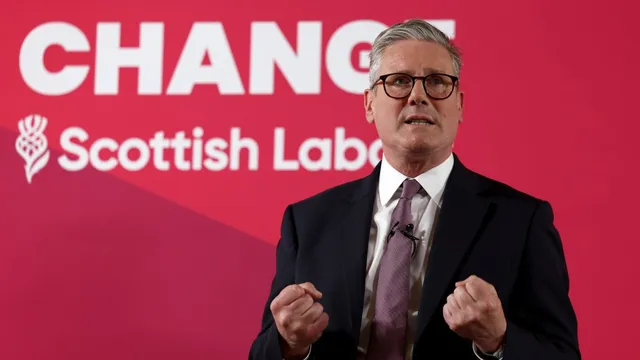
Keir Starmer to establish council with devolved nations in UK
2024-09-11 23:01- Sir Keir Starmer has confirmed the creation of a new Council of the Nations and Regions involving first ministers from Scotland, Wales, and Northern Ireland.
- The new council will replace the previous joint ministerial councils, which were criticized for lack of engagement from the UK government.
- This initiative aims to enhance collaboration and ensure that all regions have a voice in national governance.
Express your sentiment!
Insights
Sir Keir Starmer has announced the establishment of a new Council of the Nations and Regions, which will include the first ministers from Scotland, Wales, and Northern Ireland. This initiative comes in the wake of Labour's recent general election victory and aims to enhance collaboration between the UK government and devolved administrations. Starmer emphasized the need for a more effective platform for discussions, contrasting it with the previous joint ministerial councils that were often underutilized. He noted that the former Tory government had a lack of engagement, with the prime minister frequently absent from important meetings. The new council is intended to facilitate formal meetings between the prime minister and the first ministers, ensuring that all regions of the UK have a voice in national governance. Starmer has already discussed his vision for this council with John Swinney, Scotland's first minister, indicating a proactive approach to intergovernmental relations. The establishment of this council reflects Labour's commitment to addressing regional concerns and fostering a more inclusive political environment. Starmer's initiative is seen as a response to the growing calls for greater autonomy and representation from the devolved nations. By creating a dedicated council, the Labour leader aims to rebuild trust and cooperation between the UK government and the devolved administrations. This move could potentially lead to more effective governance and policy-making that takes into account the unique needs of each region. Overall, the formation of the Council of the Nations and Regions marks a significant shift in the approach to intergovernmental relations in the UK, with the potential to strengthen the ties between the central government and the devolved nations, ultimately benefiting the political landscape of the country.
Contexts
Keir Starmer's Labour Party is currently facing significant challenges as it seeks to establish a council with the devolved nations in the UK. This initiative is set against a backdrop of pressing issues, including a critical health service crisis highlighted by a report from Lord Darzi, which revealed increased waiting times and stagnant cancer diagnosis rates within the NHS. Starmer's government plans to unveil a ten-year reform strategy focusing on technology and community care to address these problems. Additionally, the Labour Party is grappling with public discontent over proposed cuts to the winter fuel allowance for pensioners, raising concerns about the impact on vulnerable older citizens. This situation has led to internal dissent within the party, with some MPs opposing the cuts, reflecting a growing divide on social welfare policies. Starmer's leadership is also under scrutiny due to a perceived shift towards policies reminiscent of Jeremy Corbyn's era, causing discomfort among some voters, particularly within the Jewish community. This has led to questions about the party's direction and its commitment to addressing social issues. As Starmer aims to foster collaboration with the devolved nations, the effectiveness of this council will depend on navigating these complex domestic challenges while ensuring that the needs of various communities are met.